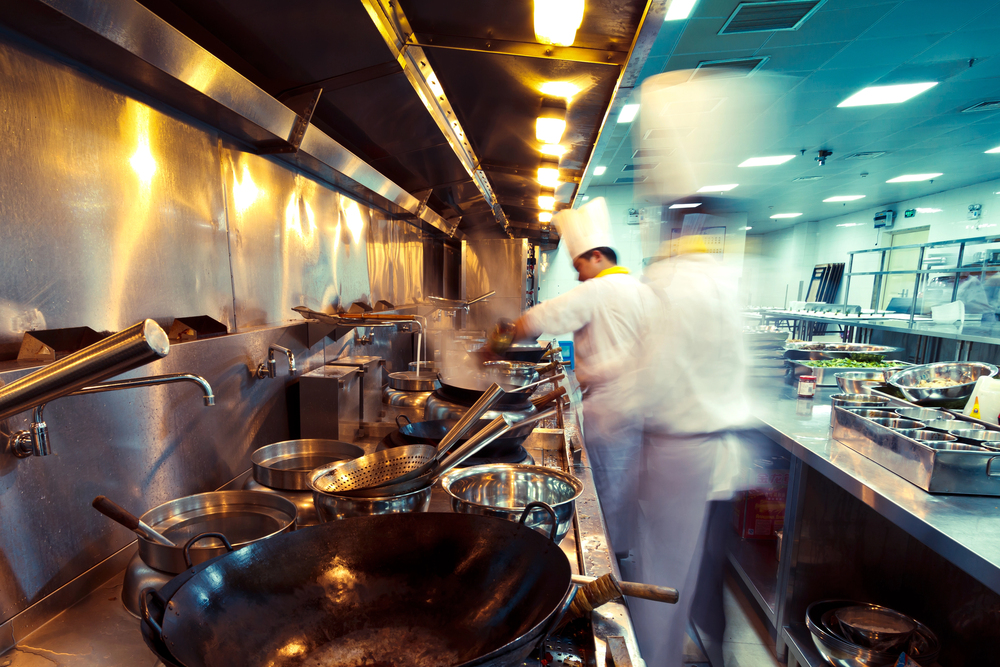Pivoting Restaurant Owners Continue to Face Challenges

By: Olivia Overman
Pivoting has been the name of the game for restaurant owners over the past few years. Simply maintaining operations throughout the coronavirus pandemic has demonstrated the creativity and adaptability of those within the industry. Today, the restaurant industry is continuing to evolve to meet emerging trends and challenges in the post-COVID-19 era.
“COVID-19 has changed the way we dine, challenging the restaurant industry to continue to adapt,” says Rachel Kallmyer, restaurant industry lead, Travelers. “This has resulted in many trends, including increased delivery facilitated by employees or third parties, greater availability of online ordering, growth in outdoor dining, eased liquor license restrictions, expanded vegetarian and vegan options, and the emergence of ghost kitchens set up exclusively for delivery.”
Yet, as the industry continues to rebound, several concerns continue to challenge restaurant owners.
“The competitive landscape is changing rapidly as business owners face the national labor shortage, new market entrants, supply chain delays, and historic inflation,” says Eric Coleman, vice president, small commercial underwriting and product, Nationwide. “Additionally, changes that emerged through the pandemic seem to be here to stay, particularly the ability to service customers via online ordering, outdoor dining, customer expectations of cleanliness and transparency, and partnering with third-party delivery services such as Grubhub and DoorDash.”
Most pressing among these challenges is the need for restaurants to hire additional staff—and the implications this has for the business, its insurance needs and its current employees. “This need for additional staffing can place tremendous workload stress on the current employees that include more tables to wait; fewer employees to handle the moving and clearing of tables; and the perceived need for additional speed to best serve patrons,” says William Hughes, vice president, commercial lines, Arbella Insurance Group. “And all of the above can create overexertion on the existing staff, which is directly tied to increased workplace injuries.”
In fact, according to the “2022 Travelers Injury Impact Report,” which analyzed more than 1.5 million workers compensation claims the company received over a five-year period, more than half of all restaurant industry claims involved first-year employees. Additionally, an increased workload can lead to a myriad of workplace injuries, both physical and mental, for current employees, which is exacerbated by the fact that in hospitality many new hires are younger, inexperienced workers that need training for their specific job duties, as well as education about workplace safety.
“Factors that may contribute to the higher risk of injury for new hires include their lack of familiarity with the flow of operations and, in some cases, their limited experience working in a kitchen or restaurant,” Kallmyer says. “In addition, the rigorous physical requirements of some restaurant jobs, including lifting, reaching, cooking and cutting, can result in strains, sprains, cuts, burns and other injuries.”
Agents can play a role in educating restaurant owners about their exposure as they deal with hiring and training new employees. Also, beyond staffing challenges and workplace safety issues, agents can also support their business by educating them on risks they may not be aware of.
“It’s important to not only speak the language of the restaurant owner but to truly understand their business,” says Heidi Strommen, senior vice president, primary hospitality programs, Distinguished Programs. “For example, many restaurant owners don’t know that their policy may not cover them for off-premises exposures.”
“Even if a restaurant doesn’t have a regular catering business, every agent should ask if they ever have a pop-up event at a location other than their own restaurant and, if the answer is ‘yes,’ make sure the proper coverage is in place,” she says. “An uncovered claim can be devastating.”
Meanwhile, against spiraling inflation, agents should ensure clients have appropriate property limits not only for their building but also their equipment. “Property limits just a few years ago, or even last year, may not be adequate today,” Coleman says. “Reviewing coverage limits for adequate values is always important but given the rapid increase in construction material and labor costs, it is more critical now than ever to review policy limits and feel confident with coverage.”
“By staying in close contact with clients and understanding how they’re adapting, independent agents can be a critical strategic partner, alerting them to potential exposures and working with them to help make sure their business and reputation are protected,” Kallmyer says.
Olivia Overman is IA content editor.










